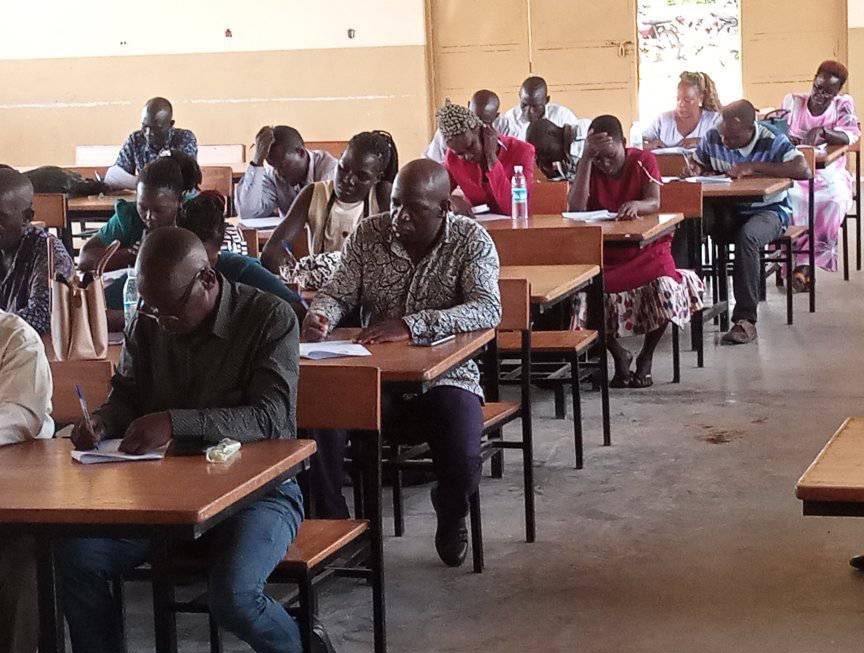By Jude Sebuliba
The results of Primary Seven (P7) candidates that were released by the Uganda National Examination Board (Uneb) on Thursday, January 25 show that out of 749,254 pupils who registered for the Primary Leaving Examination (PLE), 88,269 failed and another 12,200, students either did not appear or only partially appeared for P7.
In the process of finding the solutions for this poor performance, the Nakaseke District LC5 chairperson, Ignatius Koomu Kiwanuka last week subjected teachers to the exams, claiming that they don’t understand what they are teaching.
However, most of the causes of these failures and absenteeism are outside of teachers’ control. For example, inadequate teachers, according to UNESCO data for the period 1970–2017.
The average value for Uganda during that period was 40.61 students per teacher, with a minimum of 27.69 students per teacher in 1992 and a maximum of 59.43 students per teacher in 1997.
The latest value from 2017 is 42.66 students per teacher, compared to the world average in 2017 based on 132 countries, which is 21.75 students per teacher in primary school.
According to the Ministry of Education’s internal calculations, and the recent validation exercise conducted by the Education Service Commission (ESC), the nation requires an additional workforce of over 78,880 primary school teachers to achieve the desired goal of maintaining a 1:40 teacher-pupil ratio at the primary level. Mr Koomu, do teachers have the ability to recruit enough teachers in those schools?
Further, many schools have limited basic resources; most rural schools have an inadequate number of textbooks, desks, chairs, and other learning resources, along with crumbling and inadequate infrastructure. Many pupils sit on the floor or share desks with up to five students.
According to Forbes data, 60 per cent of primary schools in Uganda still lack a proper library, leaving countless students without access to essential reading materials.
Nearly 90 per cent of schools still did not have electricity in 2014 (Simbi Foundation survey), and the majority don’t have computers with Internet connectivity. Chairman, please assist us, should teachers buy basic resources for the schools?
Additionally, there is the prevailing weather conditions and trends in agricultural work to contend with. The Uganda National Household Survey Report 2016/2017 showed that 18 per cent of children aged seven to 17 years are engaged in child labour.
A large percentage of rural areas work in agriculture and, at the time of harvesting, are expected to help their family members on the farm, hence ending up missing classes.
Mr Kiwanuka, how will good teachers teach these pupils from gardens?
Besides, teachers’ general training has been controversial for a while. It should also be noted that in 2016, the National Assessment of Progress in Education (NAPE), revealed that eight out of every 10 primary school teachers who qualified in 2015 could neither read nor solve basic primary-level mathematics questions.
Finally, poor results cannot be tied to one cause, there must be a right combination of various strategies that can be used to help improve the performance of students in PLE. Some of the strategies include parental involvement, infrastructure provision and human resources, effective supervision of instruction is required to guide teachers, to be able to combine relevant input for the enhancement of the teaching-learning process, parents who always give recognition, fully support, adequate supplies of learning tools and give guidance to children to complete homework, and communication between parents and children.
This poor performance and absenteeism can also arise from the students and family’s side. These include broken homes, behavioural and emotional problems like family conflicts, Lack of motivation: families are not able to motivate their children through counselling and guidance, poor health, mental retardation, and an inability of the families to help their pupils complete their exercises and have the basic learning materials.
Jude Sebuliba is a Researcher at EPRC, Makerere University.
Do you have a story or an opinion to share? Email us on: dailyexpressug@gmail.com Or follow the Daily Express on X Platform or WhatsApp for the latest updates.

